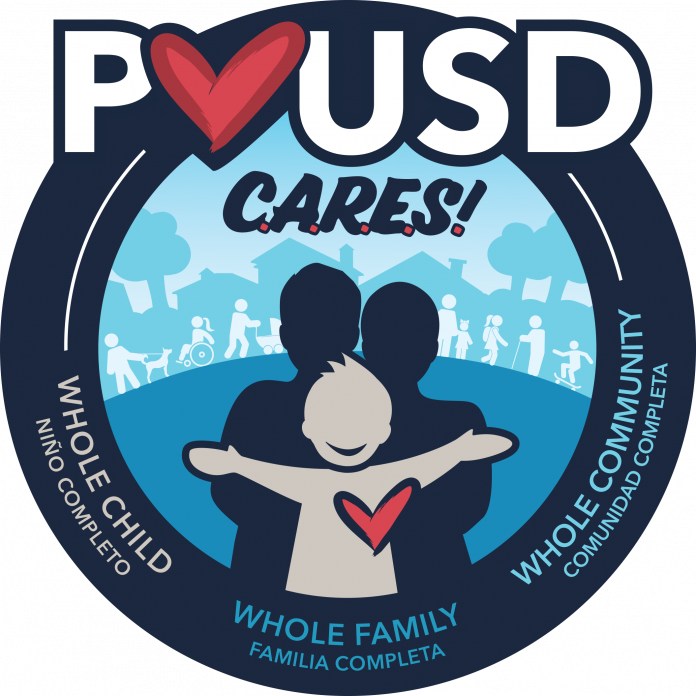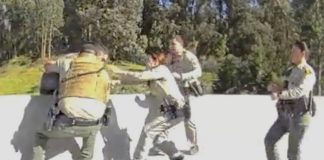We are all lifelong learners committed to growing and understanding more about our world. Humanity’s great strength is in its ability to adapt. A little over a year ago, the Pajaro Valley Unified School District Board of Trustees decided to end our contracts with the Santa Cruz Sheriff’s Department and the Watsonville Police Department for school resource officers (SROs). That was not a decision taken lightly and was certainly not without controversy.
Was it a response to national movements, an outpouring of personal stories, and calls for restorative justice? Of course. Our community does not live in isolation. We also based our decision on research showing potential harm, especially to communities of color. Some literature demonstrated an improved sense of safety, but that is different from proving actual safety.
At the time, we made our decision from a perspective of prevention rather than response and what ultimately was the best use of what was projected to be very limited funding. But, unfortunately, as unpalatable as some might find the idea of factoring costs into decisions that affect children, the reality we face is that our public schools have been chronically underfunded for decades. At times, that necessitates incredibly difficult choices.
When making those decisions, context is key. And, in the last year, the context around SROs has shifted. The concerns about our funding options have changed—at least temporarily with one-time funding. As a result, we have options for using funds that we did not have a year ago.
Furthermore, we are 18 months into a global pandemic that has had devastating consequences. We firmly believe that the measures our district has taken have saved lives. However, that doesn’t mean that our lives have not been affected. We have seen evidence of heightened stress responses in our students, parents, staff and community members. Living under constant vigilance is bound to have an effect, which is why we put additional resources towards school nurses, counselors, and other avenues for social-emotional support.
But sometimes, preventative measures are insufficient for addressing imminent needs. With the kinds of confrontations that we have seen on our campuses in the last few weeks—and yes, with the tragedy that happened at Aptos High School—we re-evaluated the decision we made a year ago. We reviewed previous and recently available studies, looked at local data (limited as it is), and listened to a wide range of perspectives on this issue. We considered the nuances of the traditional role of the SRO versus what it could be. From there, we considered how to reconcile the real pain and trauma members of our community have experienced. We also recognized that, sometimes, a sense of safety is as significant as anything quantifiable.
Choosing to reinstate our SROs is a recognition that though we wish to live in a world where law enforcement within an institution of learning is not needed, we are grappling with factors that have made calls to the Sheriff’s Department and Watsonville Police Department necessary. An SRO, one trained in our restorative practices and familiar with the needs of our students and their backgrounds, could mitigate more punitive responses.
As a school district, we invest in our youth by investing in campus health and safety. That investment means having counselors, psychologists, nurses, teachers, teacher aides, social-emotional and restorative justice programs to ensure positive connections for students. And to begin to heal, move forward and create progressive change, we need the whole community’s support of our students. SROs simply represent one option for students, parents and staff in the toolkit for providing our schools with the appropriate range of resources needed to provide learning and safety.
We recognize that not everyone’s experiences with SROs have been positive. We believe people’s stories. We also believe the accounts of those who have seen the difference SROs have made in averting crises that never made the news. These two realities are not mutually exclusive. Instead of an “either/or” stance, we have chosen to take an “and” approach. Yes, we are reinstating our SROs. AND we are committed to doing so in a collaborative way that integrates SROs within the community of our school sites through pairing the SRO with a mental health clinician and providing training in the realities our students face.
There is always room for growth and improvement. We can always do better. And doing better sometimes means looking back, reassessing past choices, and making a course correction. So while we work towards creating the world we want for our students, we are committed to ensuring that all those building a path in that direction have the tools they need.
A humbling aspect of becoming a school board trustee is realizing how many different considerations go into every decision. This column is PVUSD’s community outreach to clarify how the board arrives at its decisions. Jennifer Holm is President of the PVUSD Board of Trustees and Jennifer Schacher is the Vice-President. Their views are her own and not necessarily those of the Pajaronian. Contact Holm at je***********@***sd.net and Schacher at je***************@***sd.net.









